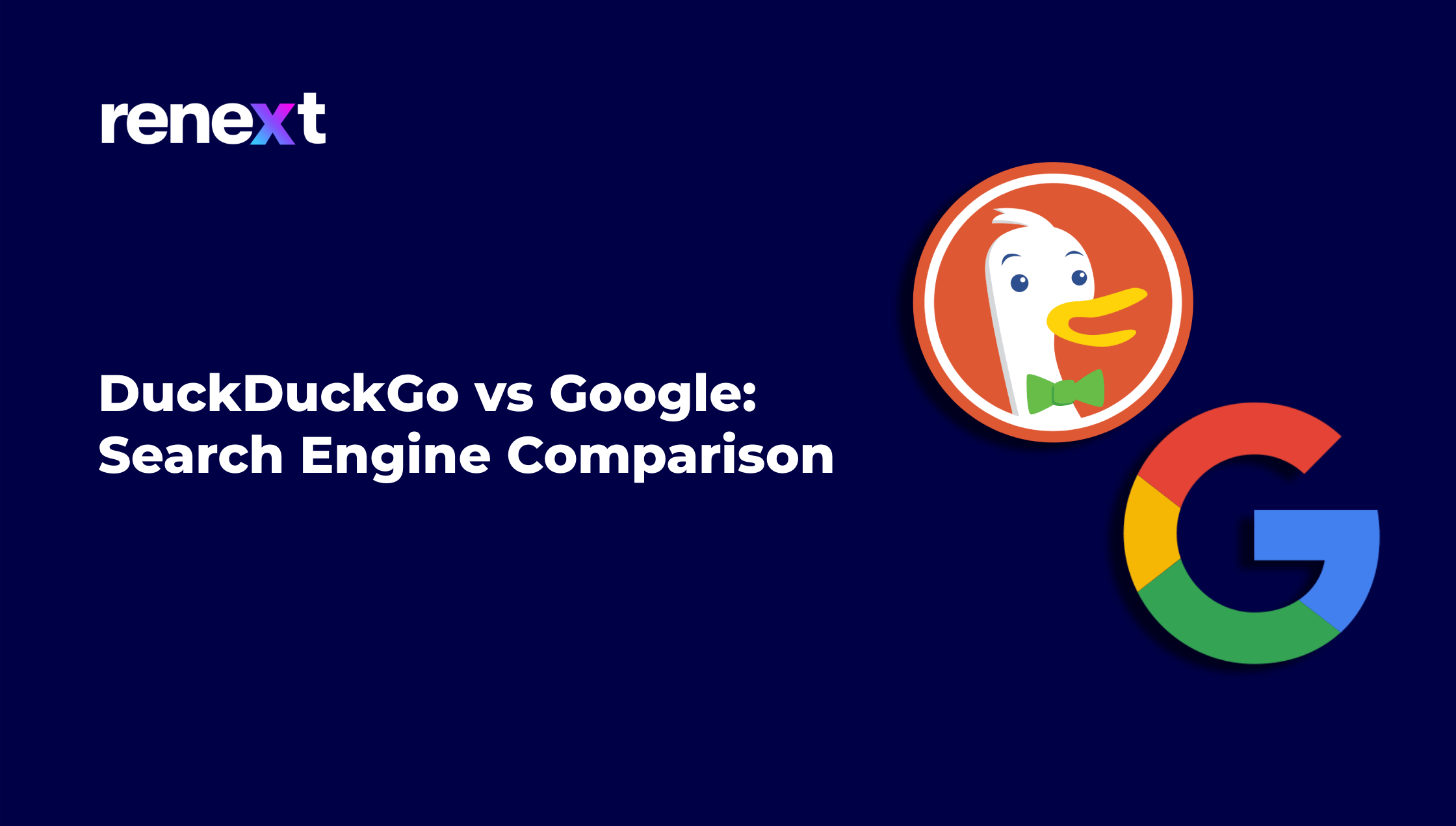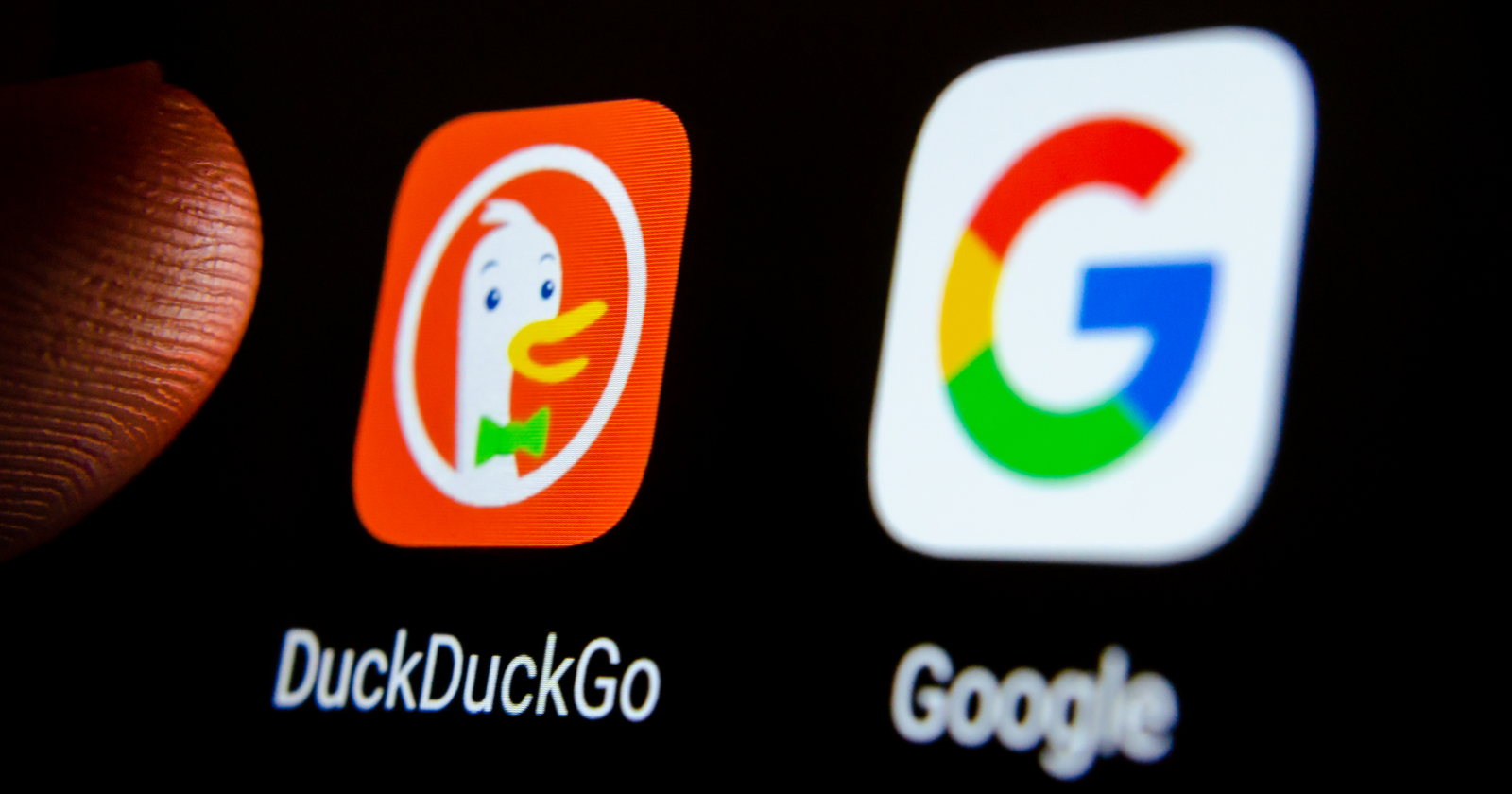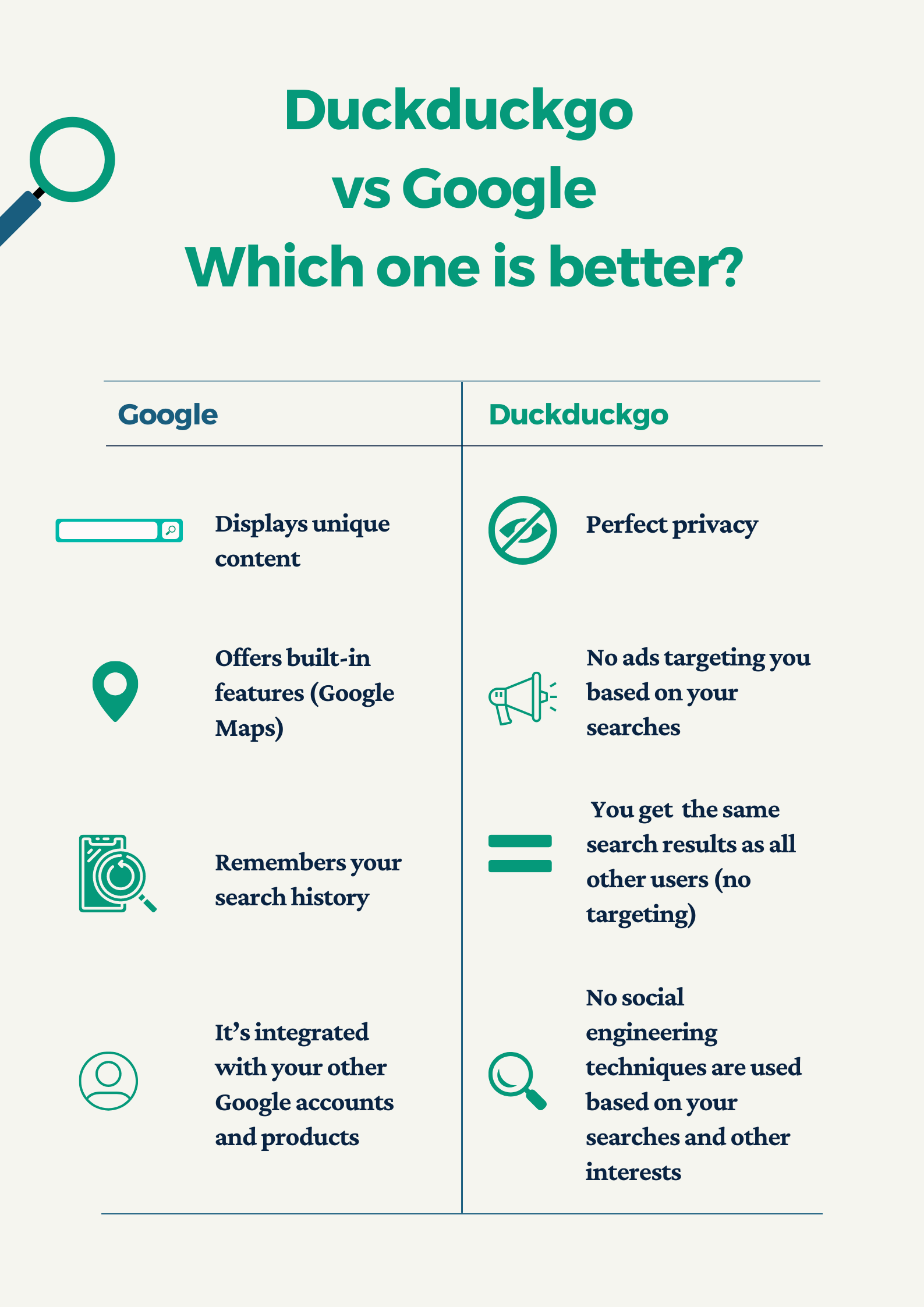
Google has come to be the leading search engine that searchers rely on practically every time at least in the western countries, and for good reason.
The quality and depth of Google’s results are what we’ve come to expect from the search experience. However, companies will always go for search market share. Some of these other search engines are worthwhile to use, particularly ones that do not match the Google model.
DuckDuckGo is a potential challenger to Google. This is particularly relevant for consumers who consider privacy to be an important factor in determining which search engine is ideal for them. But, aside from greater privacy measures, DuckDuckGo has a lot more to offer searchers.
DuckDuckGo
DuckDuckGo prioritises information over standard search results. This is known as zero-click information because the information is obtained with zero clicks. This data includes topic summaries, related topics, and images connected to your search queries.
The search engine also provides information such as category sites, similar concepts, and relevant group subjects. These pages assist you in discovering useful information connected to the information you seek that is not available through standard search.
DuckDuckGo employs a patented technology known as semantic topic recognition to aid in the search for relevant results for your queries. If you type an uncertain term, DuckDuckGo will ask you to define it and present you with more relevant resources on the subject.
DuckDuckGo also aims to remove irrelevant search results to help you find what you’re looking for faster and with less mental effort. It will deliver results that are free of clutter, spam, and advertisements.
DuckDuckGo has a more user-friendly UI. Users will have a more pleasurable user experience. It can also accommodate larger text and larger clickable areas, which improves usability and makes the eyes and brain work more efficiently.

Google Inc. owns the search engine Google Search. It is the most popular search engine on the internet. It processes around 3 billion searches every day. Google is a multinational corporation based in the United States. It is headquartered in California. Larry Page and Sergey Brin established Google in September 1998.
Google primarily serves as a search engine, searching for text in publicly accessible documents provided by web servers. The search results will be shown based on a priority rank known as Page Rank. Google search also provides tailored results. The original word search option includes 22 extra features such as synonyms, time zones, language translations, voice search, and image search, allowing users to search using their voice or by providing photographs.
Google search is supported by a number of localised websites. To retrieve search results, queries are expanded and submitted. Google’s home page includes a button that says “I’m feeling lucky.” Its goal is to locate the best match for your query the first time, without requiring you to search for results. If the site is known to install harmful software, a flag will appear in the search results.
Google has expressed worries about web search privacy. Google is offered in a variety of languages. It has been localised or is only available in certain countries.

Now let’s compare DuckDuckGo and Google on different aspects
AI
To keep up with the trends, both Google and DuckDuckGo are introducing AI assistants to aid with search results. Google’s Search Labs are now only available in the United States, and the results have been mixed to say the least. Still, it’s in its early phases, and we expect it to improve as it learns from individuals who interact with it.
DuckDuckGo just developed its own AI, DuckAssist, which now leverages OpenAI and Anthropic to summarise responses to popular topics found on Wikipedia. DuckAssist is still in beta and appears instead of Instant Answers for a limited number of search queries, and it can make mistakes with difficult inquiries, but we expect it to grow and improve over time.

Page Searches
The search engine’s finest feature is its bangs. Bangs, named after the exclamation point that follows a bang, are text strings that redirect search queries to the internal search of a given website. For example, if you want to check out a movie on IMDb, type!imdb bang followed by the title of the film. The inquiry is sent to IMDb, and you are forwarded to the imdb.com results page.
Google’s searches are undeniably excellent. The search engine has an unmistakable understanding for what you intended to search for. It can decipher a jumbled string of misspelt search phrases and return exactly what you expected. All of its tracking enables the fastest and most accurate search results. However, it is not the only game in town.

Privacy
Users’ privacy is undoubtedly the most pressing issue with Google right now. And if you’ve never found yourself questioning the quantity of data taken from you on a regular basis, we could be about to surprise you.
DuckDuckGo positions itself as a search engine option for consumers who are tired of having their privacy compromised. They’ve designed a privacy policy that’s clear and simple to read, so nothing gets lost in translation. DuckDuckGo does not trace your search history and does not save your IP address or other user information.
However, Google has failed to clarify how much user data they collect, how they manage privacy, and where your information is going. Their privacy policies are perplexing, and they’ve even been grilled by Congress on the subject.
Unlike Google, DuckDuckGo engine does not collect and share your queries with advertising, so you will not be targeted based on your searches. DuckDuckGo has advertising, however they are driven by relevance rather than your personal information. In fact, they’ve lately expanded their work to include the creation of technologies designed expressly to assist you in maintaining your online anonymity.

Advertisements
When you search for something on DuckDuckGo, you may see advertising connected to your search. So, if you’re seeking information about, say, the latest smartphones, you can come across advertisements for smartphones.
DuckDuckGo doesn’t follow you around or remember what you’ve previously searched for. It has no knowledge of your name or any other personal information about you. The idea is to keep your searches private so that the adverts you view don’t reflect your personal history. They are simply related to what you are looking for at the time.
Google takes a unique approach. When you search on Google, it remembers what you’ve previously searched for, what websites you’ve visited, and even where you are right now. It uses all of this information to deliver you adverts that are highly personalised to you.
If you were looking for recipes yesterday, you may encounter cooking-related ads today. Google’s advertising function similarly to a personal shopper, attempting to estimate what you’d enjoy based on what it knows about you. However, this means Google knows a lot about you, which some people find useful while others find intrusive.

Homepage
From the homepage, both search engines have a similar simple structure, with a logo and a search bar underneath it. If you find the homepage too simple, either one provides theme modification possibilities to make it your own.
Both search engines will offer recommendations to finish your query as soon as you begin typing, but Google offers a few additional ways to search than text, such as by voice using a microphone or by image using Google Lens.
Google also includes a “I’m feeling lucky” button that takes you to the first-ranked page for the search term you typed. Bangs are DuckDuckGo’s analogous functionality for bypassing search results.
DuckDuckGo features a collection of bang shortcuts that consist of an exclamation point followed by a few characters that direct you to the results of a given webpage.

User-friendly
Both Google and DuckDuckGo are user-friendly, with simple interfaces and straightforward search results. Google’s tailored search results may make it easier for people to locate what they’re looking for, but they can also be piled up with advertisements and sponsored material.
DuckDuckGo’s design is simple and straightforward. Users can, however, use the search engine’s settings menu to apply themes, modify fonts, manage page width and alignment, and change background colours. DuckDuckGo has a better UI, less advertisements, and a focus on privacy.
Users may have to trawl through more results to locate the information they seek, however, because it does not tailor search results. You won’t have any trouble if you know what you’re looking for. However, because DuckDuckGo does not keep track of the music you’ve listened to, you might have a tougher time discovering it.
The Google Doodle, a series of temporary logos commemorating holidays, events, famous historical personalities, and more, is part of the fun of using Google. On your birthday, you’ll see a unique Google Doodle when you check in to your Google account.
Users are at ease with the search engine’s appearance. Advertisements are not obstructive or overbearing. You may also use themes to customise the appearance of your Google Chrome browser.

Search Results
Both Google and DuckDuckGo operate in a similar manner, utilising a model that is shared by the majority of other search engines. Both platforms help you get the most relevant answers to your search query by combining their own web crawlers with data from hundreds of sources such as Wikipedia, Bing, and Wolfram Alpha.
The differences in how DuckDuckGo works versus Google frequently result in noticeably different search results. And for many DuckDuckGo supporters, the question raised of the difference is highlighted as yet another reason why they should leave Google.
When you click on a Google search result link, the platform communicates your exact search term to the website you’re visiting. If you examine the HTTP referer header, you may notice your initial search terms spelled out there in front of you. Your IP address is also shared with the website so that it may be identified. DuckDuckGo, on the other hand, has called this tactic “search leakage,” and they do not engage in it.
Google also employs a technique known as “echo bubbles,” which allows you to see what your friends are searching for and then correlate your search results with their searches. As a result, whatever your friends are looking for may influence your search results.
DuckDuckGo does not save any personal information about you, and there are no filter bubbles to influence your search results. You may be confident that when you submit an inquiry, you will receive clear, unbiased results.

Conclusion
In the DuckDuckGo vs. Google comparison, the choice ultimately comes down to your personal priorities and preferences.
DuckDuckGo is the clear winner when it comes to privacy. With a comprehensive privacy policy, a promise to not track search histories, and a prohibition on saving personal data, it’s an excellent choice for individuals who wish to keep their online activities secret. Furthermore, DuckDuckGo has a user-friendly layout with minimal advertising, resulting in a clean and efficient search experience.
Google, on the other hand, may be your go-to search engine if you desire strong AI capabilities and are willing to trade some privacy. Users seeking specialised information can benefit from Google’s well-established AI features, precision in understanding user intent, and personalised search results.
DuckDuckGo is a great option for privacy-conscious individuals, whereas Google excels in AI-driven search results but has privacy drawbacks. When making your decision, keep your individual demands and priorities in mind.




